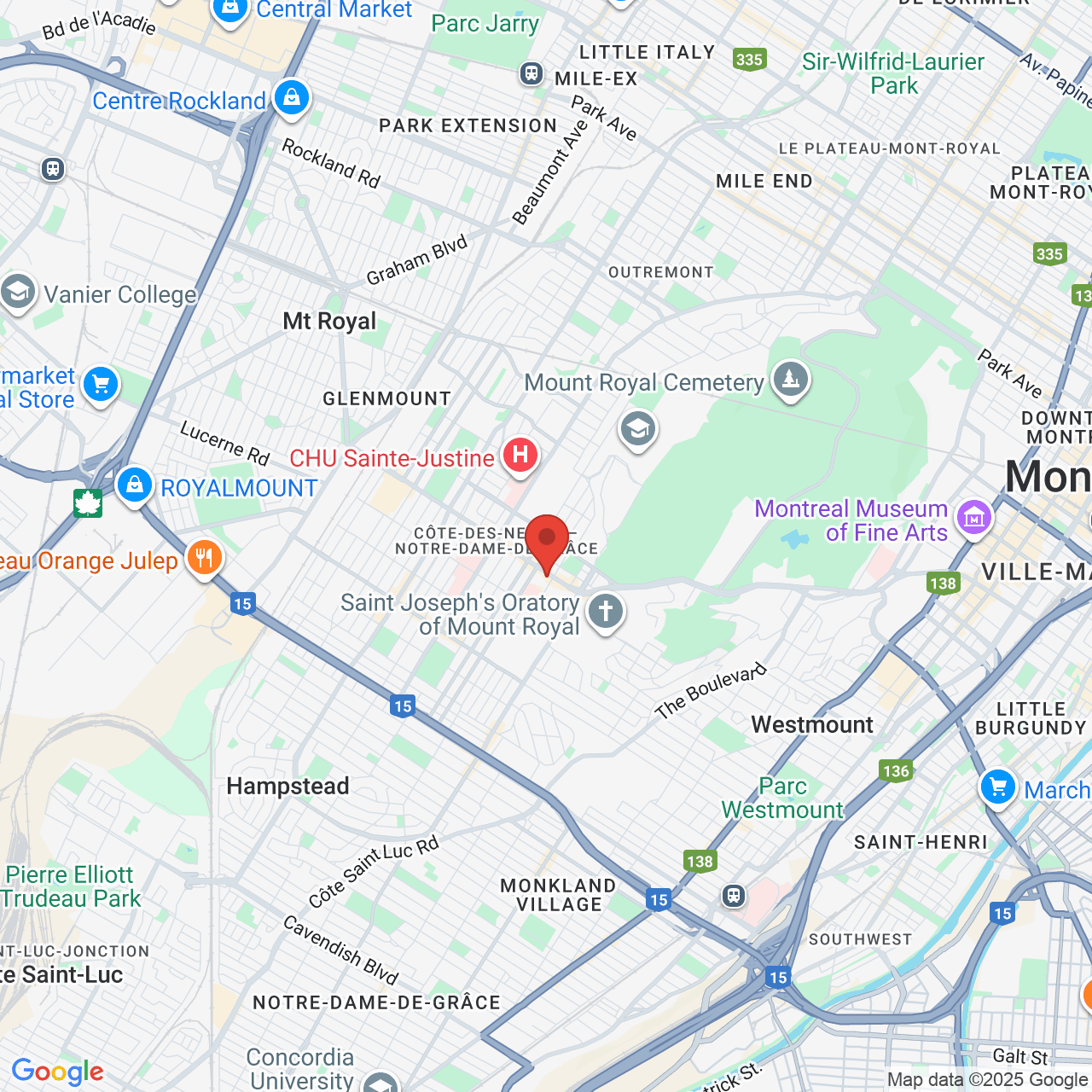Root Canal Montreal
A tooth is made of different layers, the white outside of the tooth you're seeing is the enamel, inside the enamel is another hard layer called the dentin. At the center of the dentin, there is a small chamber called the pulp chamber that contains the nerves, arteries and veins. The pulp extends down through a narrow channel all the way to the tip of the rot, this is the root canal.
When a tooth has a deep cavity, it allows germs to get into the pulp chamber. These germs cause the pulp to die causing infection. A severe trauma to a tooth can also cause the pulp to die and get infected. Pus can eventually build up at the tip of the root and make a hole in the bone, this is called an abscess.
An infected tooth never heals on its own. It will continue to get worse and eventually can even affect your entire body. The damage inside the bone can be extremely painful and even be life threatening. To get rid of the infection, the tooth can be extracted but if not replaced, the remaining teeth can start shifting or be treated with root canal therapy.

Root canal therapy consists in removing the infection and by filling the root canal to promote healing. A dental file is used inside the canal to clean the infected tissues and shape the canals to receive filling materiel.
Sometimes root canal therapy may be suggested even if the nerve is intact. If the tooth needs major reconstruction, either because of a large filling or a fracture, the treatment will allow the dentist to place a post to strengthen the tooth a give anchorage for a future crown.
Root canal therapy is about 95 percent successful. Many factors influence the treatment outcome: the patient's general health, bone support around the tooth, strength of the tooth including possible fracture lines, shape and condition of the root and nerve canal(s).
Teeth treated with root canals must be protected during treatment. Between appointments, your tooth will have a temporary cement filling. If this should come out, please call the office and arrange to have it replace.
The tooth may normally be sensitive following appointments and even remain tender for a time after the treatment is completed. If sensitivity persist, and does not seem to be getting better, even several weeks after the root canal is finished, please let Dr. Berbari know.
Fractures are one of the main reasons why root canals fail. Unfortunately, some cracks that extend from crown down into the root are invisible and hard to detect. They can occur on uncrowned teeth from traumatic injury. Biting on hard objects, habitual clenching or grinding or even just normal wear. Whether the fracture occurs before or after the root canal, it may require extraction of the tooth.
Since teeth with root canals are more brittle than other teeth, Dr.Berbari will probably recommend a crown to prevent future damage. This is especially important with molar and bicuspid teeth.
Teeth treated with root canal can still decay, but since the nerve is gone, there will be no pain . As with other teeth, proper care of these teeth consist of good home care, a sensible diet and periodic dental checkups.
With some teeth, conventional root canal therapy alone may not be sufficient. For example, if the canal(s) are severely bent or calcifies, if there is substantial or longstanding infection in the bone around the tooth or a metal file becomes separated within a canal, the tooth remain sensitive and a surgery procedure may be necessary to resolve the problem.
There are alternatives to root canal therapy . They include no treatment at all, extraction with nothing to fill the space and extraction followed by a bridge, partial denture or implant to fill the space.
If you have more questions, please ask Dr. Berbari he will gladly help you!!

